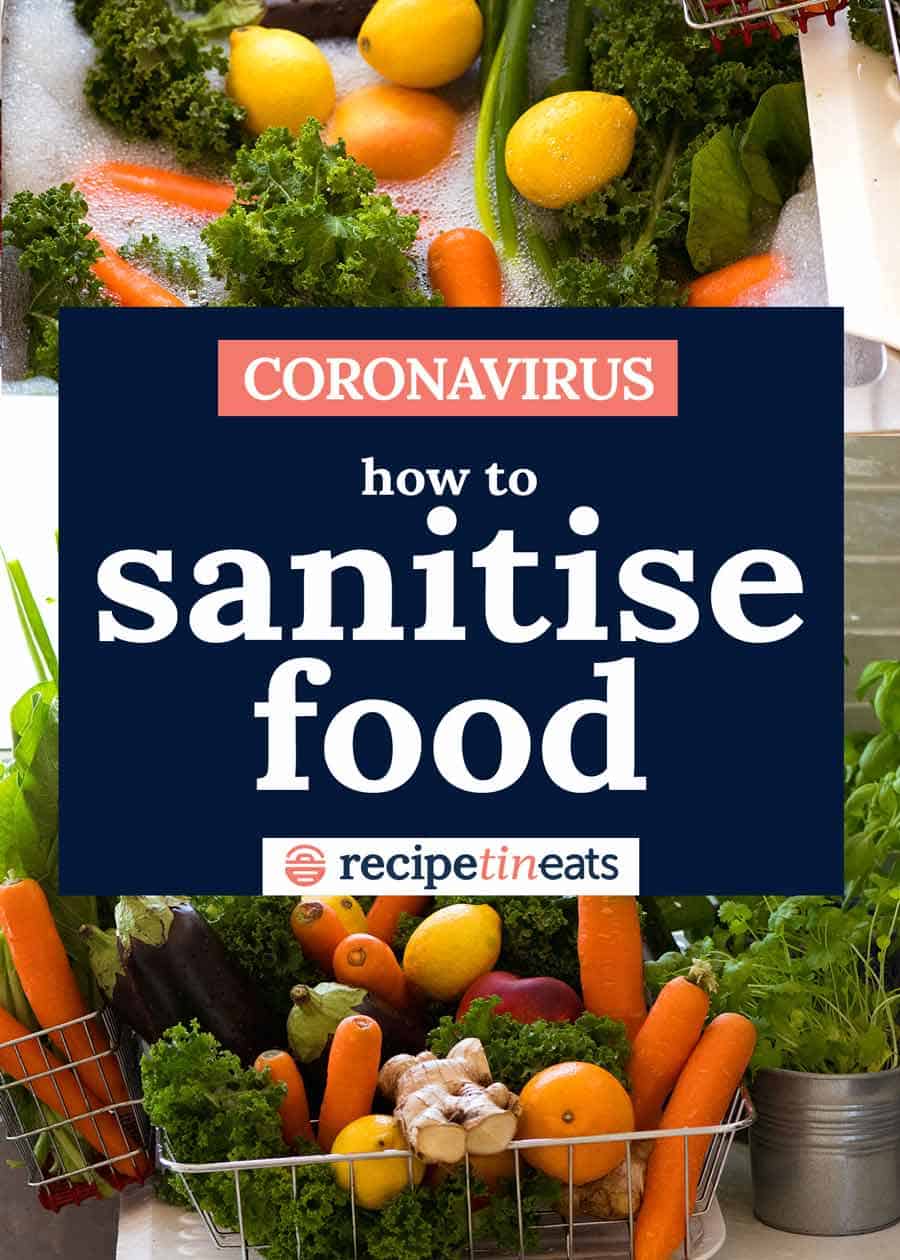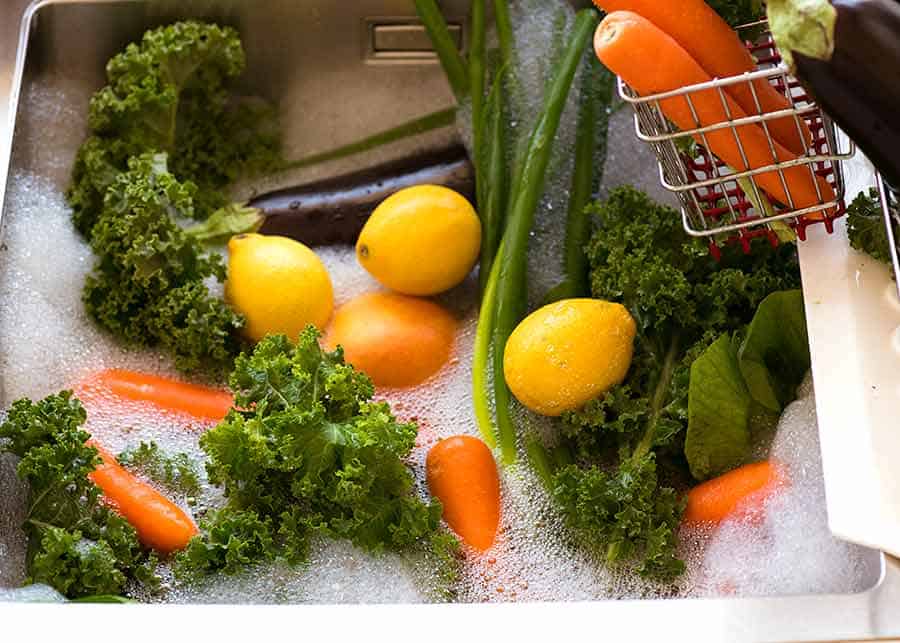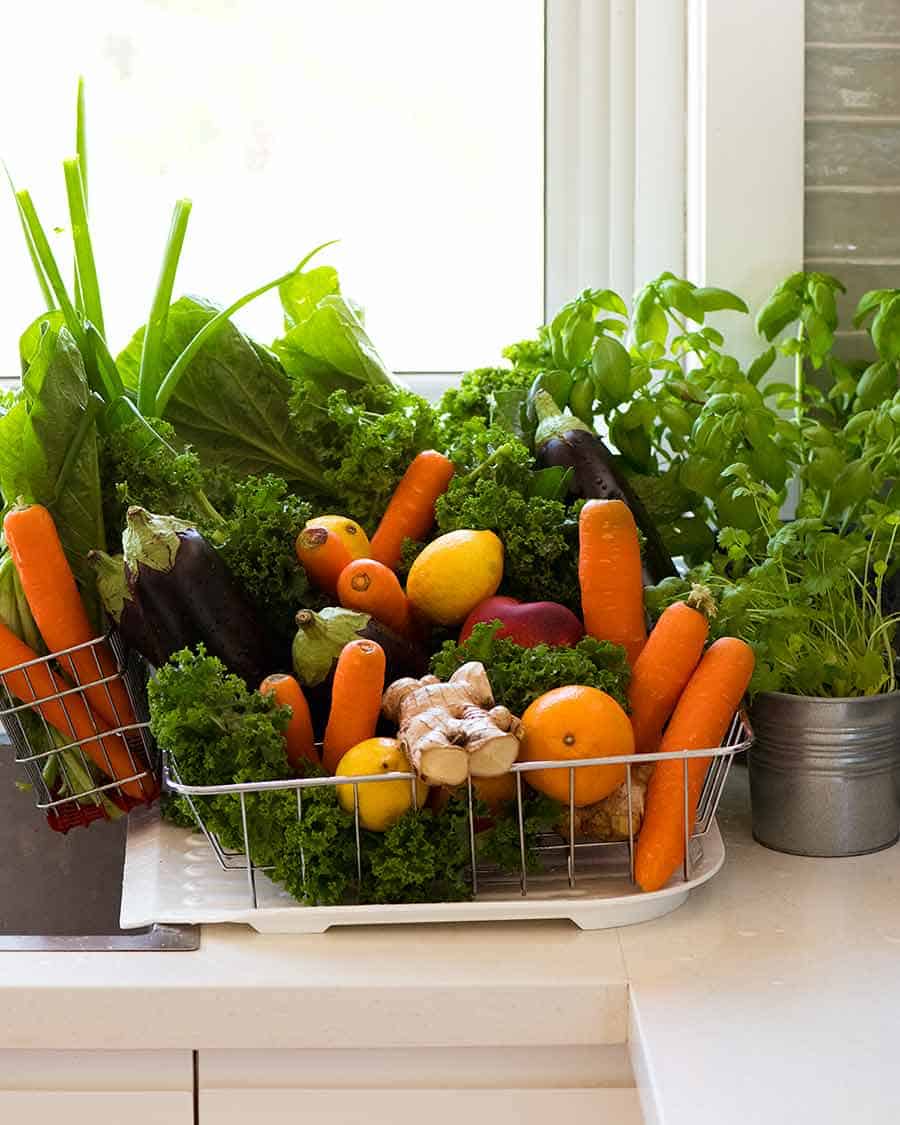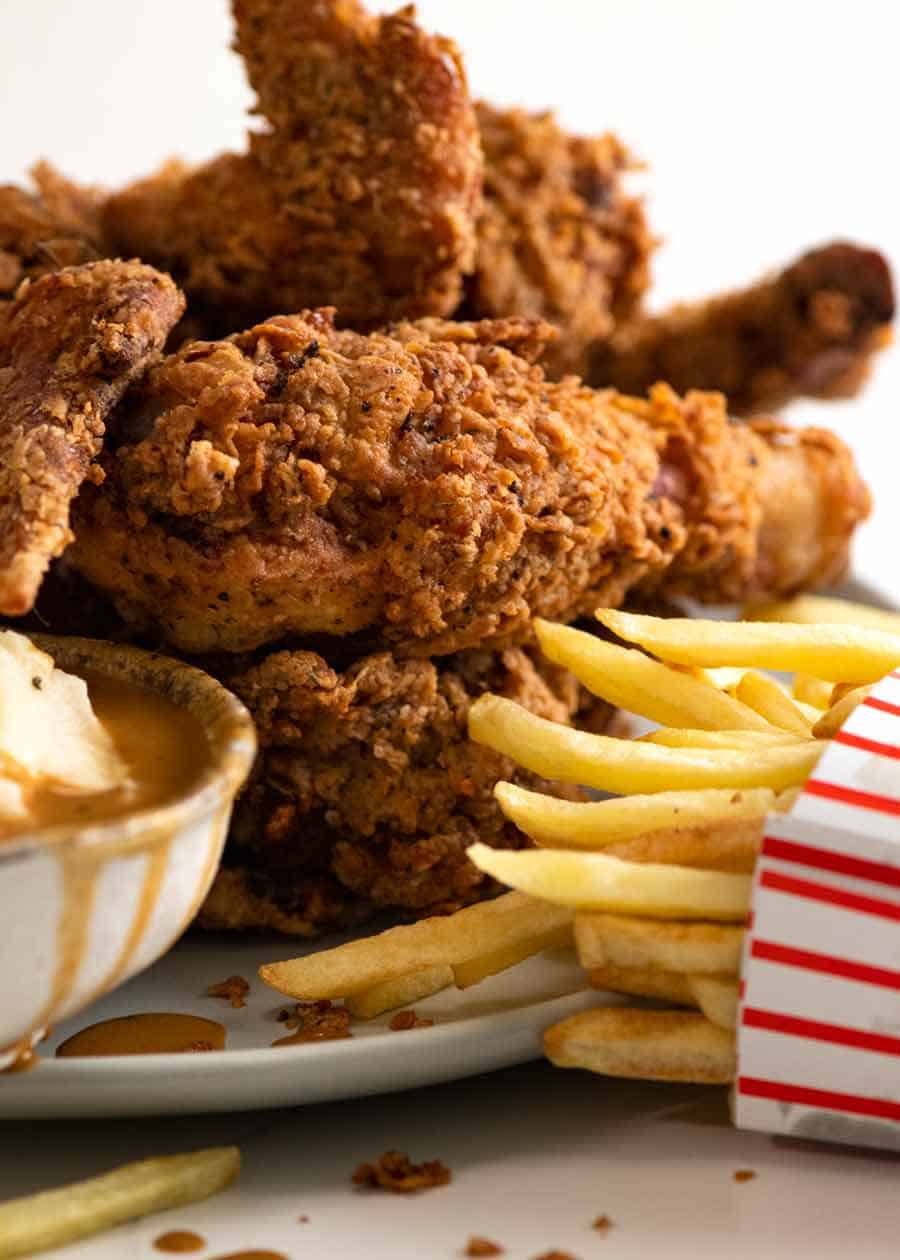Background
Though Coronavirus cannot be passed through food because it needs a living host to survive, it does persist on surfaces. The exact time is still unknown, but the World Health Organisation says it may be for a few hours or up to 3 days. (Excerpt here) Accordingly, I sanitise my fresh produce – and in this post I explain how I do it.
How to sanitise food
I wash all my fresh produce (fruits and vegetables) in warm soapy water just like I’m doing the dishes. I used to use just water – or salt or vinegar for some things. Grossed out? I was too, initially. But you can’t taste the detergent and even lettuce remains crispy if you use this method: I clean all vegetables whether I intend to cook with them or not because:
I store all my produce bundled/piled together; and it is not yet known at what temperature Coronavirus is killed during cooking (or how long you have to cook for).
If you can’t be bothered or don’t have time to go through the above, I’d recommend only eating cooked foods. (Or if you want to be extra cautious) The longer you cook, the safer it gets (not yet any definitive guidance on how long you need to cook for).
Vinegar and salt – not as effective
In the past, I’d wash produce with just water, or use either salt or vinegar in a sink full of water to clean my produce. But it’s pretty well documented that while this will kill bugs and some bacteria, it doesn’t kill viruses.
Some general points
Meat, fish, seafood – I don’t wash because they’re cooked Food and ingredients in cans, jars and packets – I don’t wash but see note below for vulnerable people Dried beans scooped from bins – cooked so I don’t wash
Vulnerable people – extra measures
I do not generally wash jars of sauces and spreads, cans of beans or packets of noodles – though today, I did wash a can of tuna I had just bought in the morning because I ate it straight out of the can (desperate food on the run!). However, if I had a vulnerable person in my household (elderly or weak immune system) then I would wash every single item that entered the kitchen OR “quarantine” them for 3 days (eg in a box, separate fridge):
bottles and jars of sauces, spreads cans of vegetables packets of noodles, dried beans, frozen vegetables bottles of fruit juice, drinks packets of dried herbs meat (wash the packet) toothpaste, face wash, shaving cream and any personal hygiene things that will be used on the face
Paper packaging
For things like flour and sugar that are sometimes in paper packaging (where water would soak through), I would wipe the packets down with disinfectant wipes, or spray then wipe. Things that are cooked have an extra safety net, but it’s better to be safe than sorry!
No fast food. Make it yourself.
If there was ever a time to make homemade meals, it would be now. Skip the fast food. KFC, Maccers, Dominos. The big chains that operate like factories who hire kids to work after school.
….BUT support your locals. MY IDEAS!!
On the other hand, as I offer advice to avoid takeout, I also feel a strong moral and sentimental obligation to support our hard working and incredibly talented hospitality industry. Restaurant workers can’t work from home. They can’t teleconference in. So the pandemic threatens to wipe out restaurants, cafes and bars across our country. I believe the hygiene management practices of reputable establishments are far better than any I can do in my own home. These people are professionals! One girl and her dog can’t save an entire industry, but she CAN offer suggestions to help support local businesses:
Ask your favourite restaurants (no matter how fancy!) for takeaway food that can be reheated at home; Skip fast food. Now is not the time for Maccers or Dominos. Use your takeout budget to support the family run businesses and reputable restaurants; Talk to the restaurant owners and read their website – hear what they’re doing to make things safe for diners. It will bring you comfort (this is what I did at my local bistros and favourite city restaurants); Gift vouchers!!! Organise a fancy fine dining dinner party IN with your favourite people! Take out from your favourite restaurants and save a ton of money by drinking your own booze and no cab fare home! Many high end dining establishments in Sydney are now looking to offer home meals as a creative means to address their empty restaurants (here’s the Gourmet Traveller live list) – and I’m hoping this is happening around the world.
Let’s support the hard working locals who put their heart and soul into making incredible food for us to enjoy during the good times. Now it’s OUR TURN to support them during the hard times. I’m taking friends to my favourite local Afghani restaurant tomorrow night!
Stay positive – we will get through this!
To everybody who is struggling in these hard times – stay strong! We are all in it together. In my very small way, I want to try to help how I can – by trying to keep your life delicious by providing efficient meal plans and tips for smart pantry items so you don’t waste money and food on wild panic buying sprees. If you are feeling down, leave a message on one of these posts I’ve been sharing about Coronavirus. I feel so incredibly fortunate to be part of a wonderful community of readers from all around the world who takes the time to help each other out, especially during difficult times like this. Think positive. Act responsibly. Be kind to others. Stay safe and well! – Nagi x
Life of Dozer
Available for virtual hugs, 24-7!





